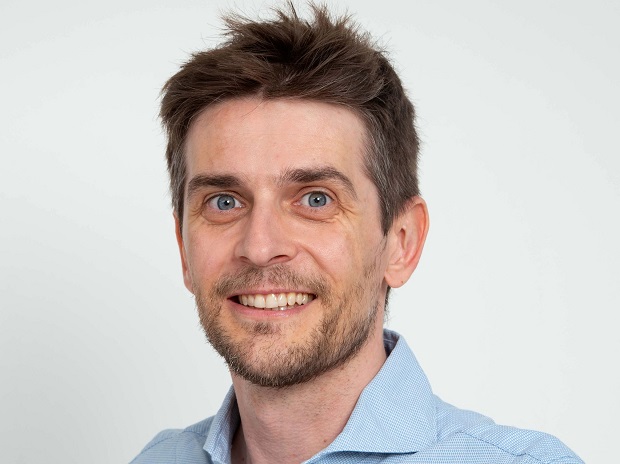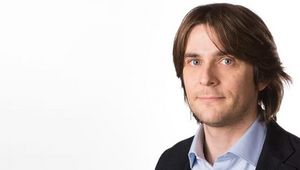Claudio Biscaro is a new professor at the Institute for Human Resource and Change Management

What is your area of research?
Univ. Prof. Claudio Biscaro: I mainly conduct research in the field of innovation and creativity at organizations. To be more precise, I study the impact of language. The way we speak, what we say when interacting with others, and what we write, has a profound impact on innovation and what we end up creating. While it can put some organizations on a productive path, some organizations can find themselves in a dead end. It is not only interesting to study the impact of language, but also the times when we see generative effects.
What do you find fascinating about this area?
Univ. Prof. Claudio Biscaro: I find it fascinating that my work can have an effect and impact. We do not yet really understand why language and its effects are so powerful. Certain words or phrases, for example, can elicit a strong emotional response, creating empathetic reactions, or encouraging collaboration. Other emotions, however, have a negative impact and could derail potential collaborative efforts. When it comes to organized social activities, these kinds of linguistic nuances are extremely important and yet we understand so little about them.
What is your inaugural lecture about?
Univ. Prof. Claudio Biscaro: My inaugural lecture will focus on the power of language at organizations. I talk about some of my most interesting work to illustrate just how and when certain terms, such as metaphors, can completely change the way a group works together. At the same time however, I will also give the audience a word of warning to not to believe that all words are always meant to create the meaning they superficially reveal.
Why is this research even necessary, meaning how will it improve our lives?
Univ. Prof. Claudio Biscaro: We need this type of research because it helps us to better understand why some collaborative efforts are not as productive as others and why some problems can be solved by working together while others cannot.
Why did you choose to come to the JKU and why is the JKU special?
Univ. Prof. Claudio Biscaro: The JKU is a quiet place but still vibrant and lively. The faculty is outstanding and I am so grateful to have the opportunity to join the faculty as a full professor. Having this opportunity is wonderful.
Why should students take your classes?
Prof. Claudio Biscaro: I think I have the ability to explain complex issues in a clear, concise way. I may be overestimating myself but I think I can make complex and important ideas relatively easy for students to understand. This is just my perception and if it turns out to be true, then I would be very happy.
What are you currently working on?
Univ. Prof. Claudio Biscaro: I try to use my data to tell different stories. Why, for example, the cruise industry is still active in Venice despite vocally massive opposition from around the world. Another one is about how metaphors create legitimacy. I am also working on other exciting projects, such as the debate over preserving native fauna in New Zealand (surprising, right?), and the role gender-specific selection plays when creating problem-solving teams at multinational organizations.
What are your hobbies?
Univ. Prof. Claudio Biscaro: Aside from work, you mean? Because I love my work. But joking aside, when it comes to my hobbies, there is a ‘before Covid’ and an ‘after Covid’. Before Covid, I loved to swim and play guitar. After the pandemic, I became a baker, particularly pizza and focaccia, and I play chess. I really love chess now.
What else do you want to do or achieve in your life?
Univ. Prof. Claudio Biscaro: I am not a super high-achiever. I just want to live out my ideas and continue writing essays, chapters, and maybe one day, a few books. I love writing.
About Claudio Biscaro
Claudio Biscaro earned a PhD in Economics at the University of Venice in 2013. He then worked at the JKU and at the Vienna University of Economics and Business. His research focuses on the individual processes that result in macro-level changes. He mainly explores the areas of language and cognition, studying just how ideas, words, and interpretations interact to generate a creative dynamic and social change. He is currently studying various phenomena ranging from social issues and creativity to innovation. He was a visiting scholar at Oxford University as well as a visiting professor at the University of Warsaw and at the University of Southern California. His research has been published in several prestigious journals, including Organization Science, Academy of Management Review, Plos One, and Environmental Research Letters.









